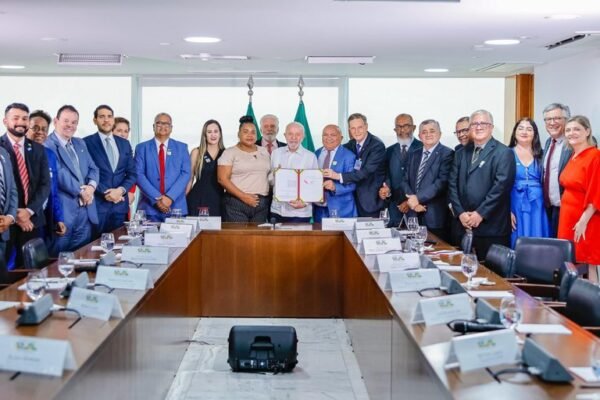President Lula sanctioned on Monday (9) the law that creates the Statute of Private Security and Security of Financial Institutions. The new guidelines address issues such as the use of weapons, and requirements for workers in the area, in addition to prohibiting the performance of independent services and requiring prior authorization from the Federal Police. One of the first points addressed in the new statute is the types of private security services, which range from property surveillance to the monitoring of electronic security systems. Meanwhile, regulations focused on violence in schools was approved in the Chamber and will now be voted on by the Senate.
This Content Is Only For Subscribers
To unlock this content, subscribe to INTERLIRA Reports.
Use of Weapons
According to the new statute, property surveillance services; on walls and guardhouses; in conservation units; transportation and escort of goods and valuables; personal security; and personnel training may use weapons, under the conditions defined in the regulation. Other services must seek authorization from the Federal Police to use weapons. The text also opens the possibility of using weapons with less offensive potential.
Registration
The weapons must be owned by private security service providers and must be registered with the National Weapons System and the Federal Police.
Events
In the case of events, those responsible for security must present a prior planning project. According to the text, this measure is necessary due to the magnitude and complexity of the situation. The document must contain the following information: estimated audience; description of the number and arrangement of security guards and risk analysis.
Minimum Age
The law establishes, for example, a minimum age of 21 for anyone who wants to work as a security guard in one of the listed activities. In addition, professionals must complete specific training courses for security guards, recognized and authorized by the Federal Police. These courses include training in security techniques, use of equipment, and emergency procedures, among others.
School Safety
Another important bill was approved recently. On Tuesday (10), a bill that establishes guidelines for the installation of equipment and security measures to prevent and combat violence in schools passed in the Chamber of Deputies. The proposal will be sent to the Senate. The text reserves a minimum of 2% of the resources committed by the National Public Security Fund (FNSP) for actions related to such equipment and security measures, as well as for the education and training of professionals and employees. To receive the resources, states, and municipalities must have school protection and security programs and implement plans to prevent and combat violence in schools.
Analysis:
The Private Security and Financial Institutions Security Statute sanctioned by Lula establishes new guidelines for the private security sector, regulating the use of weapons and requiring greater control by the Federal Police over the services provided. Extremely affected by informality, the regulation of private security services, if really enforced by authorities in day-to-day life, could improve its quality. The regulation has the potential to reduce cases of irregular provision of private security services, often offered by public agents who work extra informal hours for additional revenue when they should be resting, after 12-hour shifts. According to a survey published in Folha de São Paulo, around 30 million citizens are informally protected in their neighborhoods by public security agents off-duty. Working by themselves, without any support and often tired, it is during these occasions that most deaths of officers take place. Such situations also open space for many more illegalities. Another problem of informality is that it damages the regulated companies, which pay taxes, and follow labor and other regulations that create a scenario of unfair competitiveness.
Sources: Presidência da República; Câmara dos Deputados; R7 [1], [2].




